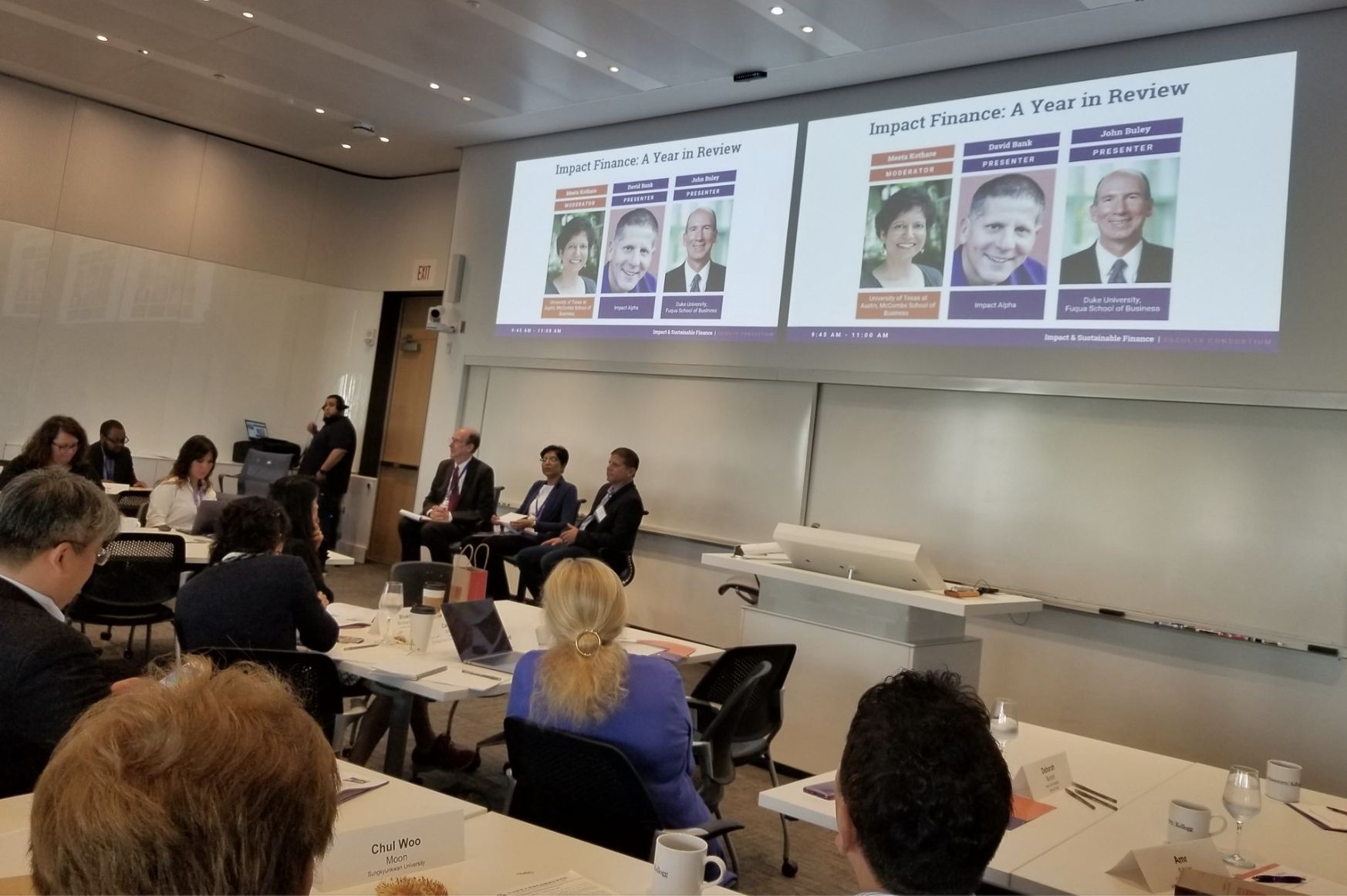Evanston, IL – Rising tuition and the lingering effects of the 2008 financial crisis means the business of sending new masters of the universe to Wall Street isn’t what it once was. One bright spot for MBA programs: oversubscribed impact and sustainable finance courses. Student demand for the courses is so high that schools are increasingly requiring prerequisites – boosting broader finance courses that otherwise would be suffering declining enrollment.
Last week’s gathering of the Impact and Sustainable Finance Faculty Consortium convened nearly 90 faculty members from dozens of schools at Northwestern’s Kellogg School of Management to share research and teaching methods. The corps of professors is still largely made up of practitioners who serve as adjunct faculty. But an increasing number are full-time, with a select few institutions represented by tenure-track faculty members.
“We are no longer part of a niche/vanguard but rather the early adopters of what every student expects in every program,” says John Bulow of the Fuqua School of Business at Duke.
The consortium has grown with the field, with long-time teachers joined by new hires and representatives of new programs, including strong representation from Colombia and Brazil as well as China and Korea, but few faculty members from Africa. Faculty shared syllabi, research and cases; the consortium awarded a small grant to Deborah Burand from NYU’s School of Law and Edward Mungai of Strathmore University in Nairobi to integrate an African perspective to the case of Habitat for Humanity’s MicroBuild Fund, which has improved housing for more than 685,000 people in 30 countries.
(Supported by the Rockefeller Foundation, ImpactAlpha partners with the consortium to integrate our editorial offerings into curricula and career programs and subsidize subscriptions. Drop a note to ImpactAlpha’s Zuleyma Bebell for details of our Agents of Impact Scholarship Fund.)











